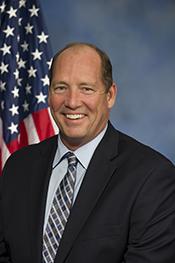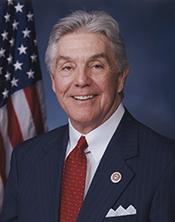0
Biennial Budgeting and Enhanced Oversight Act of 2014
3/14/2024, 12:48 PM
Congressional Summary of HR 1869
Biennial Budgeting and Enhanced Oversight Act of 2014 - Title I: Congressional Budget Process - Amends the Congressional Budget Act of 1974 (CBA), including the Congressional Impoundment Control Act of 1974, to revise the federal and congressional budget processes by establishing a two-year budgeting and appropriations cycle and timetable, beginning with the 115th Congress. (Defines the budget biennium as the two consecutive fiscal years beginning on October 1 of any odd-numbered year.)
(Sec. 103) Devotes the first session of any Congress to the budget resolution and to appropriations decisions, retaining current deadlines in most cases. Changes certain deadlines to conform to the biennial scheme. Devotes each second session to the President's budget review submission and the Congressonal Budget Office (CBO) report submission to congressonal budget committees.
(Sec. 104) Amends the CBA to include in the biennial budget resolution subtotals of new budget authority and outlays for nondefense discretionary spending, defense discretionary spending, Medicare, Medicaid and other health-related spending, other direct spending (excluding interest), and net interest.
Eliminates specified additional matters that currently may be included in a concurrent budget resolution, including:
- an opinion on whether the goals for reducing unemployment set forth in the Employment Act of 1946 should be achieved;
- a display of federal retirement trust fund balances;
- Senate procedures for revising committee allocations, aggregates, and other levels for any legislation that would not increase the deficit;
- procedures to effectuate pay-as-you-go in the House of Representatives; and
- direct loan obligation and primary loan guarantee commitment levels.
Prohibits the budget resolution from including a suspension or alteration of the motion to strike certain amendments to reconciliation bills and resolutions that would decrease specific budget outlay reductions below the provided level without making comparable decreases in other specific budget outlays, increases in other specific federal revenues, or a combination of the two.
Requires each congressional committee to review the mandatory strategic plans, performance plans, and performance reports of all agencies under the appropriate committee's jurisdiction. Allows each committee to provide its views on the plans or reports to the budget committee of the applicable chamber.
Requires each congressional budget committee to report to its chamber, on or before April 1 of each odd-numbered year, the budget resolution for the biennium beginning on October 1 of that year.
Requires the report accompanying the budget resolution to include:
- new budget authority and outlays for each major functional category, based on allocations of the total levels specified in the CBA;
- for each major functional category, an estimate of total new budget authority and total outlays, with the estimates divided between discretionary and direct spending (currently, discretionary and mandatory) amounts; and
- total outlays, total federal revenues, the surplus or deficit, and new budget authority and outlays for non-defense discretionary spending, defense discretionary spending, Medicare, Medicaid and other health-related spending, other direct spending (excluding interest), Social Security, and other major functional categories as appropriate, and net interest as set forth in such resolution as a percentage of the U.S. gross domestic product (GDP).
States that if the budget resolution provides an allocation to any committee (other than the Committee on Appropriations) in excess of current law levels, its accompanying report must include a justification for not subjecting any program, project, or activity (for which the allocation is made) to annual discretionary appropriations.
Repeals authority for the report accompanying the budget resolution to include:
- information, data, and comparisons on the share of total federal budget outlays and of GDP devoted to investment in the budget submitted by the President and in the resolution; and
- the assumed levels of budget authority and outlays for public buildings, with a division between amounts for construction and repair and for rental payments.
(Sec. 106) Makes it out of order in either chamber to consider any measure that contains an authorization of appropriations for any purpose unless it includes such an authorization for that purpose for at least each fiscal year in one or more bienniums.
Excludes from this prohibition any authorization of appropriations for a single fiscal year for a program, project, or activity if the measure containing the authorization states that Congress finds that no authorization of appropriation is required for the applicable program, project, or activity for any subsequent fiscal year.
(Sec. 107) Makes conforming amendments to the Congressional Budget and Impoundment Control Act of 1974.
Title II: Conforming Amendments to the Rules of the House of Representatives and the Congressional Budget and Impoundment Control Act of 1974 - (Sec. 201) Makes conforming amendments to the Rules of the House of Representatives as well as the Congressional Budget and Impoundment Control Act of 1974.
Title III: Conforming Amendments to Titles I, 5, 31, and 39, United States Code - (Sec. 301) Requires all Acts making regular appropriations for the support of the government to be enacted for a biennium and to specify the amount of appropriations provided for each fiscal year in that period.
(Sec. 302) Conforms requirements for the President's budget to the biennial framework.
(Sec. 303) Changes to a biennial basis specified requirements for certain federal strategic and performance plans, performance reports in budget submissions, and program performance reports.
Title IV: Effective Date - (Sec. 401) Sets forth the effective date of certain amendments made by this Act.



